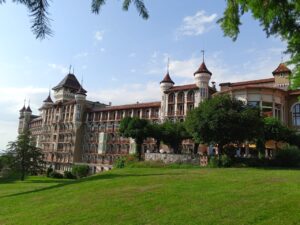
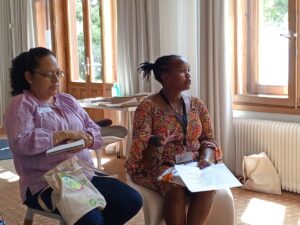
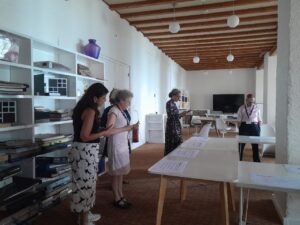

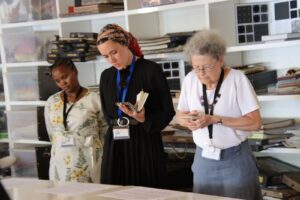
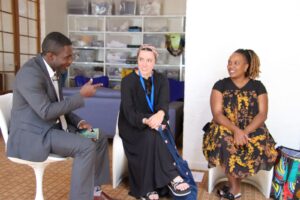
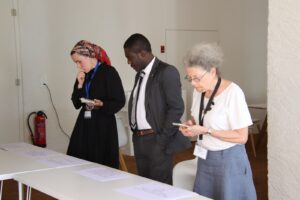
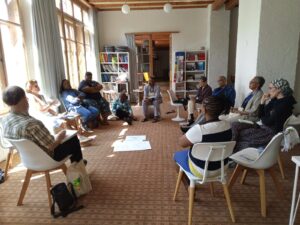
The Workshop on Forgiving Others took place on 19-21 July, 2023 at Caux Palace, overlooking Lake Geneva in Switzerland. The workshop was part of the ‘Healing the Wounds of the Past Conference’ organized by Initiatives of Change International that brought together over 500 participants from around the world.
Over the three days, the Lead Facilitator, Njeri Ndiangui, who is also the Executive Director for Bridges of Peace Initiatives (BPI), led the participants into a process to unwrap the three key elements of forgiveness; Forgiving Others, Self-Forgiveness and Asking for Forgiveness.
The intensive transformational workshop, which was punctuated with deep personal reflections and sharing, had participants from around the world including the United States, Netherlands, UK, Switzerland, Nigeria, Turkey, South Africa, Germany, and Kenya.
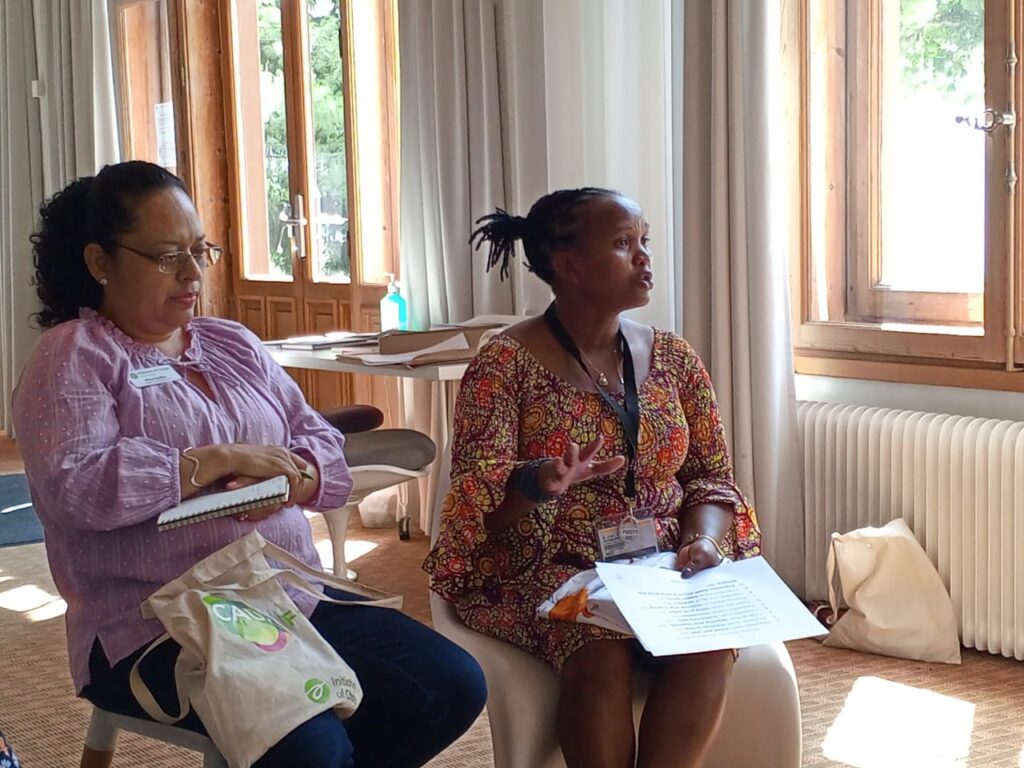
Forgiving Others
The participants were taken through the journey to understand what forgiveness is and what it is not. They brainstormed and shared on their understanding and experiences of forgiving people that had hurt them. In addition, the facilitator guided participants as they explored the complexities and challenges that accompany making the difficult decision & choice to forgive and begin the journey of healing.
“This has been emotional for me. I am living proof that not forgiving others is more damaging to us as human beings. My lack of forgiveness led me to have an autoimmune disease. I need to forgive and let go of the pain that I have held for so long.”
With all the misconceptions, misinformation, and confusion around the concept of forgiving those who have hurt us, some participants got to better understand what forgiving those who have hurt us means. “I have learnt something profound today. I have always refused to forgive because I thought that forgiving someone who hurt me meant reconciling with them. I am glad to know that when I forgive others, I don’t necessarily have to reconcile with them. I am grateful for this workshop.”
One of the participants decided to always choose forgiveness. “I have learnt that I have two choices- I either choose to forgive those who have caused me pain and get healing and freedom for myself or choose not to forgive them and take the path of self-destruction. I am choosing the path of healing.”
Moved by a forgiveness story that was shared during the session, another participant felt encouraged to forgive those who had hurt them. “Thank you for sharing your story of forgiving others. If you could forgive all that pain and let go of bitterness, then I, too, can forgive. I am inspired and encouraged to process and forgive those who have hurt me.”

Self-Forgiveness
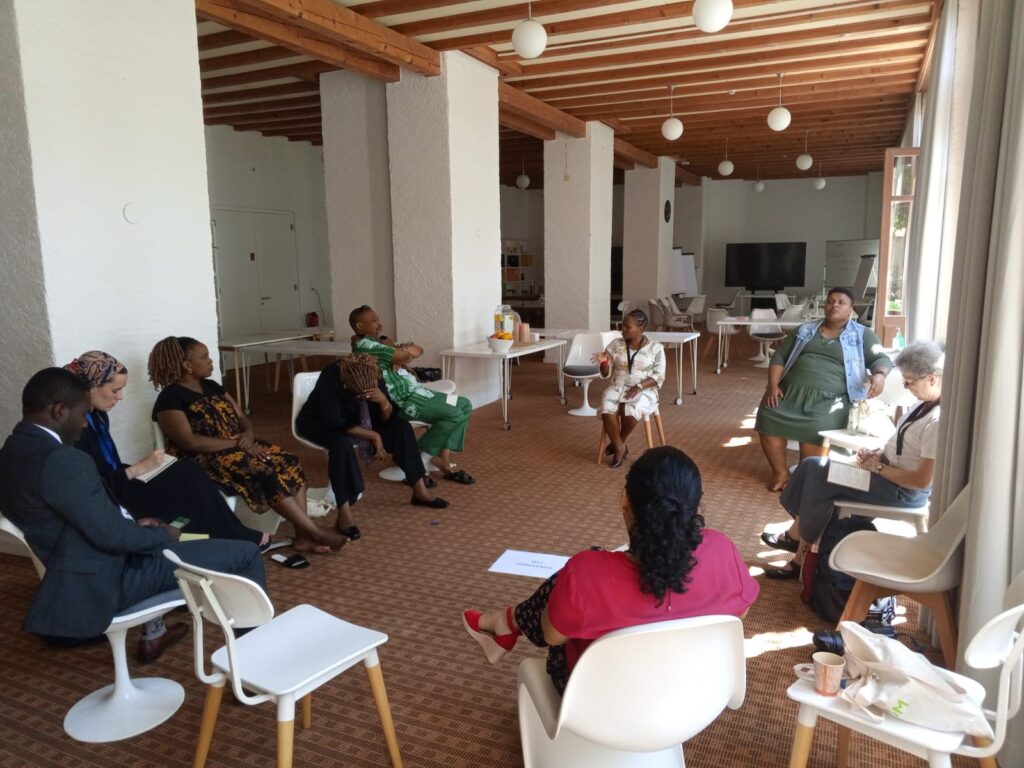
The session on self-forgiveness provided a safe space for participants to explore their past mistakes, accept their vulnerabilities, and make a choice to forgive themselves and commit to a journey of healing and growth. There was a lot of tears in the room as participants shared areas of their lives that needed self forgiveness. The desires, struggles and even the hope to forgive self were expressed. “I have hated myself all along for the sexual abuse that I went through when I was young. I have missed opportunities to love me as I am. I must love myself as I am. I need to forgive myself for hating myself.” shared one of the participants after the session.
One participant bravely admitted, “I made a mistake this morning. I need self-forgiveness and forgiveness from someone else whom I hurt. I made a comment to that person and I later felt in my heart that was wrong. I hurt that person with my words. I hurt myself too. I need this workshop today. I will forgive myself then I will look for that person and apologize to them.”
It was clear that many people judge themselves very harshly when they have failed themselves or made mistakes. They struggle with self-forgiveness because they tell themselves they don’t deserve it- especially when the mistake was done consciously. “I am struggling to forgive myself for something that I did while knowing very well that it was wrong. How do I forgive myself while I did the wrong knowing very well that it was wrong?”
The participants were reminded that self-forgiveness is an acknowledgement of our humanness. And human beings will always make mistakes. We must acknowledge that regardless of what has happened in our lives, we too deserve forgiveness just like anyone else. That is not to say that self-forgiveness takes away the responsibility and consequences of ones action.


It is undoubtful that at times we regret our choices and decisions. But being able to forgive ourselves can help us not hold on to regrets and resentments towards self; “I will forgive myself for not putting enough time in my professional practice. I committed so much of my time to an organization that I treasured and forgot to build my own practice. I need to forgive myself for that.” Shared another participant.
The space was safe enough for participants to reflect on where they were failing and could do something about it and make the future better: “I need to forgive myself for being too busy for my daughter. Whenever my daughter wants to talk to me, I am always busy. I don’t think I have given her the time she needs. I need to plan how to intentionally spend time with her. I will shut down some of my personal activities to listen to her. I want to be a better dad for her.”
The shared experiences of pain, brokenness in a safe, reflective and non-judgemental environment emphasized the importance of embracing self-compassion, self-kindness, self-love and acknowledging that self-forgiveness is not about erasing the past but about using it as a foundation for personal transformation.

Asking for Forgiveness
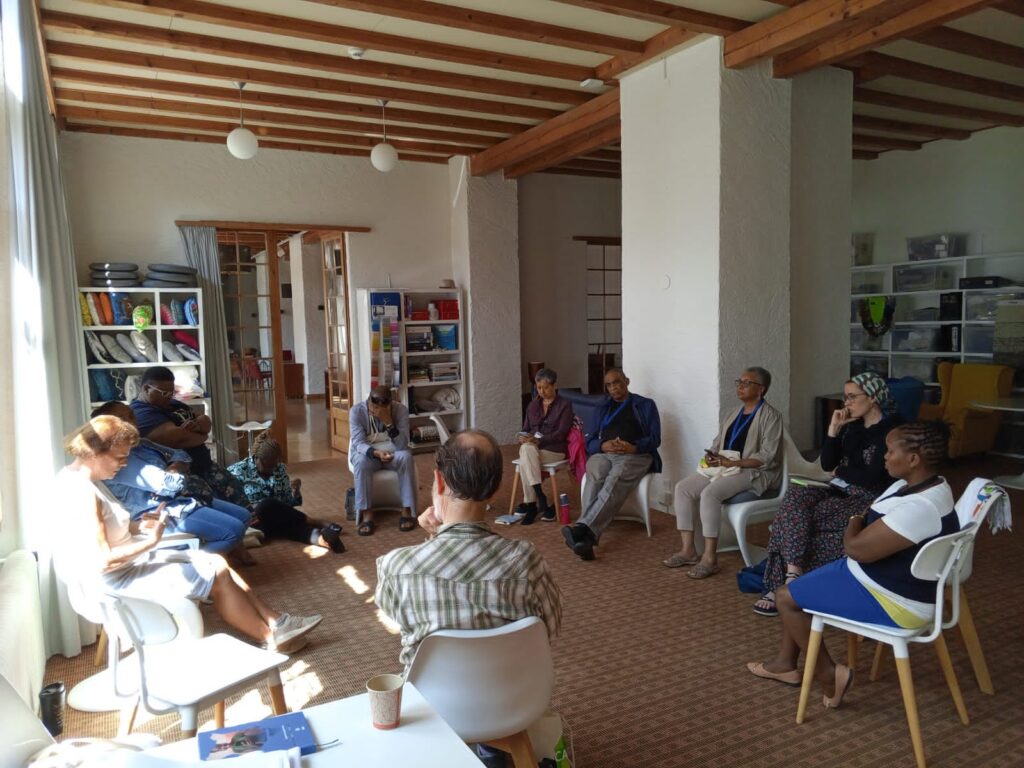
“I need to apologize to a number of people that I have hurt. But I am worried they might not accept my apology.” These were the words of one of the participants in the workshop that explored the aspect of asking for forgiveness. While forgiveness is not always guaranteed, taking the step to apologize and ask to be forgiven can pave the way towards healing and reconciliation, fostering stronger relationships and personal growth for both parties involved.
The participants were reminded by the facilitator, Njeri Ndiangui, that if they had wronged someone, it is not in their power to demand to be forgiven. “However, it is in your power to apologize and ask to be forgiven. How the other person receives it is not in your power. You must be ready for anything including your apology being rejected. That is why it is important to first take the process of forgiveness internally before you can actualize it externally. You need to have first acknowledged your mistake and then forgiven yourself for having hurt another person before you can ask them to forgive you.” Njeri said to the participants.
Most participants acknowledged that asking for forgiveness is not easy and requires courage and a dose of humility. As one of the participants shared, “It is not easy to ask for forgiveness because it means that I have to acknowledge my mistakes and take responsibility for my actions. When I gathered courage to apologize to my brother after I hurt him, it became the beginning of enjoying a good relationship with him. It was difficult but I am glad I did it.”

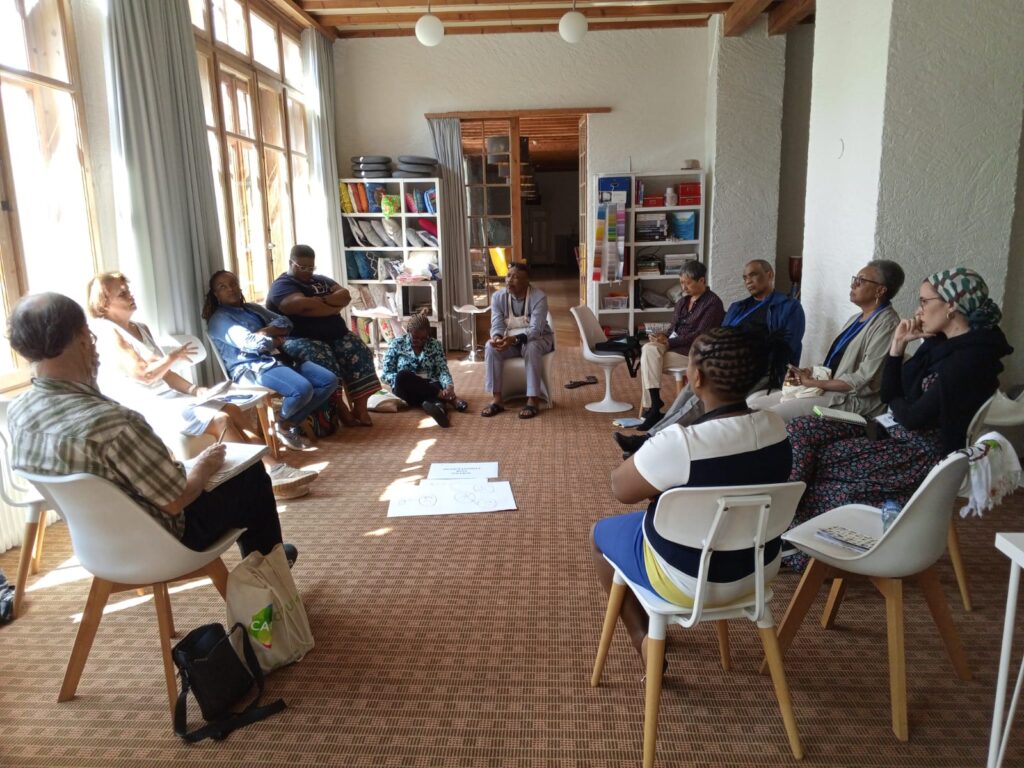
“I am feeling very broken right now. We were doing some work with some people and as I tried to push for what I believed was the right thing, I ended up hurting my teammates. We shall be having an evaluation meeting in a few days and while at it, I will acknowledge my mistake and apologize. Someone close to me caused me a lot of trauma when I was young and the trauma has always played out whenever I meet with a person that acts and do things like that person. I hate myself when that side of me comes out. I become pushy and needy. I hate it. I need to forgive the person who caused me the trauma, I need to forgive myself as well so that I can heal.” Shared another participant.
As the participants made commitments to go ask forgiveness from people they have hurt, they were reminded that the process of seeking forgiveness involves not just uttering words of apology, but actively listening to the hurt party, validating their feelings, and understanding the impact of our actions on them. It requires vulnerability and a commitment to change, showing that we have learned from our mistakes and are determined to be better versions of ourselves.
Bridges of Peace Initiatives (BPI) is honoured to have been part of the Healing the Wounds of the Past Conference in Caux, Switzerland, and to make a contribution to global peace building efforts.